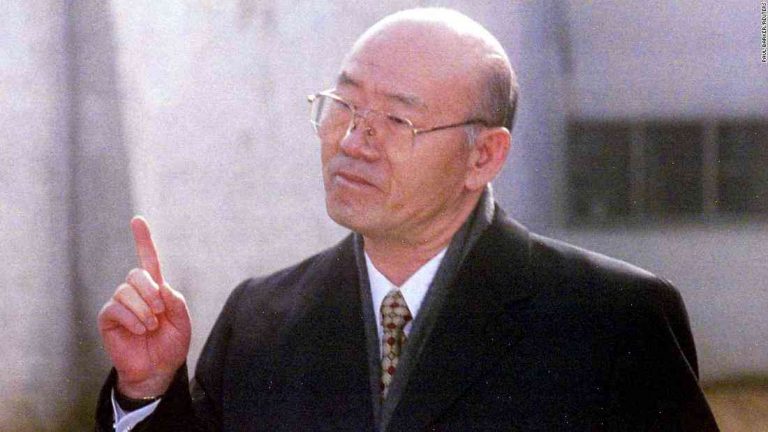Former South Korean military dictator Chun Doo-hwan, who governed the nation during a period of political and military repression, died Saturday at the age of 90, his family announced.
Chun, who had led South Korea’s spy service during the Cold War, served as chief of staff for a succession of military regimes that began in the 1970s. He then relinquished power to Park Chung-hee, who took the helm in 1961 and then served for nearly three decades. Chun was elected as the country’s president in 1979, by a vote that was widely seen as a sham designed to restore the autocratic system Chun had come to represent.
The Constitutional Court ousted him in 1981, convicted him of illegally imprisoning and torturing hundreds of his political opponents.
Chun, who had been in poor health, had been hospitalized in Seoul for several weeks in recent months.
Park — who died in 1994 — was considered the father of modern South Korea. He took over as head of state after seizing power from his rival, North Korean dictator Kim Il Sung, in a bloodless coup. The North had sent in its troops as protection against what it claimed was a right-wing plot to overthrow Kim. As the face of the regime, Kim was considered a more charismatic ruler than Chun.
His enduring legacy was the enigmatic “Sunshine Policy,” which he imposed through an alliance with North Korea that enjoyed widespread support among many conservative citizens, many of whom viewed the country’s impoverished North as a potential savior.
His era also included a controversial friendship with Kim’s son, Kim Jong Il, which ended with a feared purge in 1994. The younger Kim spent much of his life trying to win over conservative South Korean opinion and become a central player in the Korean Peninsula.
But his success was stunted when he was killed in December 2011 by a North Korean artillery attack on a South Korean island. Analysts have believed that North Korea had masterminded the attack in retaliation for a South Korean naval shooting near the two nations’ disputed maritime border.
Some historians say the younger Kim was trying to take control of his father’s legacy in the traditional power structure in South Korea, which had been closely tied to its military, ruling classes and the United States.
Even after becoming leader, Kim attended military school, served as a vice consul in the United States and undertook several false-flag diplomatic missions to northern nations. He did much of his thinking and buying of weapons in private meetings and visits to home countries as an individual in South Korea, rather than through his official government position.
The younger Kim’s era ended in spectacular fashion when he was assassinated two years after his father, who had shown a far more comprehensive understanding of the nation’s needs.
The statement issued by Chun’s family said that a funeral ceremony would be announced as soon as possible.
